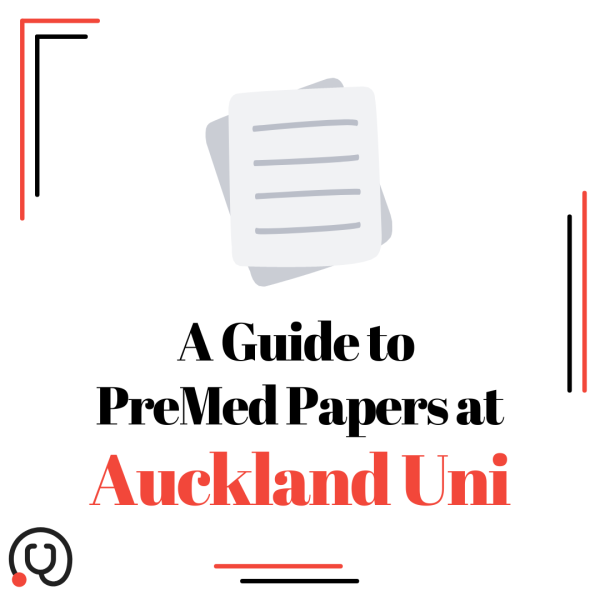A Guide to Pre-Med Papers at Auckland University – From a Past Student

4 months ago by Chris
It is difficult to find reliable information on what Medicine and your first year of study will look like at university, and the Auckland PreMed degrees are surely no exception. It can feel like navigating blind if you don’t have guidance, so here’s a summary of the courses you will sit in either your Health Science or Biomedical Science undergraduate year.
The papers outlined in this blog are the core papers you will sit, that is, the ones which count for your application into second year medicine. Your performance in these papers, combined with your UCAT score and MMI interview, will determine whether you will gain entry into Auckland University medicine.
BIOSCI 107 - The freight train of information
Of the three papers you will sit in the first semester, this one is by far the most information dense and revision demanding. You will study units related to Cells and Tissues of the Body, Blood, Muscle, and Neurons. At times it will feel like you’re being overwhelmed with information, especially at the beginning, but there are ways to avoid this. The most critical step is to “hit the ground running”.
After high school you will have a good grasp on what study techniques work for you, and if you don’t, there are wonderful guides to help you. Be prepared before university begins, know how you will take your notes, and how you will remember them. If you stay consistent with your recap, you will thrive in the two major assessments which cover the first half and second half of the content separately.
CHEM 110 - Memory and application
This was my favourite paper of the first year. Chem 110 is an introductory chemistry course that rewards (but doesn’t demand) prior chemistry knowledge. The lectures centre around giving you a comprehensive understanding of topics including Spectroscopy, Organic Chemistry, and Acids & Bases. However, the trick to this course is thinking holistically about the information you receive, and learning to apply it yourself. This is why Chem 110 is the paper above all others where doing past exams (available from the Canvas website and the Library website) will boost your chances massively.
It will also help to have a strong understanding from high school, more so than any other paper you will study. Pushing yourself in years 12 and 13 will take some pressure off this paper, and doing things like the Chemistry Olympiad or Scholarship exams will pay off big time. The paper also features labs which require hard work and concentration (pardon the pun). It is important to prepare well with the resources given to you, so that you come into the lab knowing exactly what to do and how.
POPLHLTH 111 - It’s not a hard science
Population Health is the most different paper you will sit in the first year. It centres around a study of disease and how it affects society, including exploration of how society is structured and how that in turn affects disease. You will learn about the ways epidemiologists graph prevalence of diseases, how we can implement a good public health response, and why it is critical to consider equity in all decisions.
To study for Population Health you will want to focus on the core points of lectures. Topics will often centre around a concept in public health, such as methods of disease Prevention, Protection, and Health Promotion (The three P’s). Often a sound understanding of these core principles in each topic is crucial, as well as the details from case studies.
MEDSCI 142 - How bad can it be?
MedSci is one of the most fascinating—and demanding—core papers you will sit. It offers an integrated introduction to human biology, with a strong emphasis on how organ systems function together. The course covers a wide range of systems, the nervous, cardiovascular, respiratory, digestive systems, and more. MedSci is a relentlessly content heavy paper. It will take up an enormous amount of your time in semester two, so make sure it is your priority.
The course coordinators will do an amazing job providing you with ways to study, but as with all university papers, the weight falls on you to work hard and self motivate. I found taking notes in lectures, and then refining those notes at home was an effective way to study. This is what they refer to in MedSci as “consolidation”, and it is very, very useful. There is simply too much information to cram, so regular and high quality study is the way to go. This paper is also relatively high in non-assessment based grading. What this means is that regular quizzes and activities will count toward your grade, and help to push your exam grade up. This is another way the course encourages and rewards regular study.
I won’t lie, these papers are likely to cover much more information than you are used to, and it will be intimidating at times. However, if you have a passion for this (and if you’re here seeking ways to succeed you probably do), the content will be interesting beyond anything you have ever studied, and you will love almost every moment.
Written by Thomas, a past MedEntry student who scored 99th percentile in UCAT and is currently studying medicine at Auckland University.


